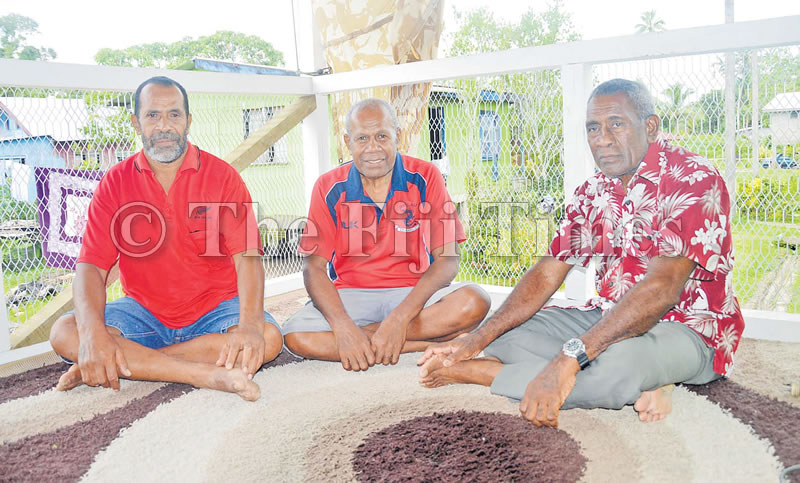Sakiusa Dakunivosa is a name that echoes in the sigidrigi fraternity as far back as the ’70s, one whose songs played over the airwaves to the comfort of listeners across the country.
Some of those songs continue to play on the airwaves today. This newspaper caught up with Dakunivosa (Gus) at his Vanuadina Village, Tokatoka in Tailevu.
It was his love for music that took him to work at the renowned Mocambo Hotel, a popular tourist destination and common endeavour for local music lovers.
Gus usually wore a big smile and a flower stuck above his ear to perform for guests. It was through music that he became a household name at Mocambo and also travelled to different places across the country to perform.
Gus finally got a chance to perform in Australia where he met the love of his life, a Dutch woman and married her.
Gus was well-versed with his traditional dialect and composed songs relating to true events or traditional stories of a way of life, both urban and in the village.
His songs became a hit back in the ’70s, and back then music was all about storytelling.
The 73-year-old said most of his songs were based on real events and that’s why listeners enjoyed them ever more.
After returning from Australia with his wife, they opened a clothing shop at Harbour Centre in Suva called “Foxy Lady”.
While operating the business, he returned to the work he loved and performed at hotels around Fiji, the good feeling was mutual at performances for both a musician and listener — and inspired to start his own band.

Gus went back to his village and formed the then ‘Vuetiau’ sigidrigi group with his younger brother and some youths in the village.
He took pen to paper and began composing songs. “I would listen to English songs on the radio and used the same music to compose my own songs – songs of stories that would suit the melody.
“When we mix fruit juice in a blender, we have to make sure that everything goes with the right portions.
“Not too much or too less sugar, everything has to be balanced and the fruits used to lure the drinkers.
“That is how I compose songs so that every listener enjoys it the first time they hear it,” Gus said. One of his compositions was the song Na Tebara e dau sili wacala became a hit when the Gaunadivi sigidrigi group, from Nausori released the song.
“I had started to write the lyrics of the song, a cousin, a group member of the Gaunadivi group asked me for the song.
“I told him the meaning of the song and gave him the lyrics and they recorded it. “However, I wrote two extra verses which was not on the recording,” Gus said.
He said the Vuetiau sigidrigi group recorded three albums (10 songs in one album) at the Procera Music.
After the albums were released on the radio, the group was invited all over Fiji to perform, including the Corowalidi Music Festivals.
The festival brought together sigidrigi bands from all over the country to perform and compete.
Gus even wrote a song about a traditional fruit known as leba which only grows at the border from Vanuadina and Lomainasau Village in the district of Tokatoka.
“When a leba fruit is ripe, there is a specific way to harvest them traditionally. You have take a via leaf (swamp taro leaf) wrap the fruit in it.
“The belief is you should be mindful not to make a lot of noise as you walk, particularly not step on a twig or make a sound when walking towards the leba fruit, otherwise it will instantly turn green again.”
One of Gus’s songs, Valenidanisi, talks about a usual scene at nightclubs. The song was sung by the Cadra ko Muana sigidrigi band and instantly became a hit.

It talks about married men going out to nightclubs and entertaining young girls for pleasure.
Gus said the song paints a true picture of married men and how young girls would lure them to buy their drinks and when they (young girls) get drunk, they would ran away.
He said in some situation, those events broke up families and it was the children who suffered a lot. Gus prefers the old way of recording over the new ones that are popular today.
“In the old days of recording everybody had to sing and play their music compared with computerised systems nowadays.
“Today one person could sing and with the help of machines to keep their voice in tuned — plus machine-operated musical instruments don’t really sound lively.
Gus said he would live the remainder of his life in his village and hopes to start another sigidrigi band and if everything goes according to plan, he hopes to share his talents and knowledge with younger generation.






